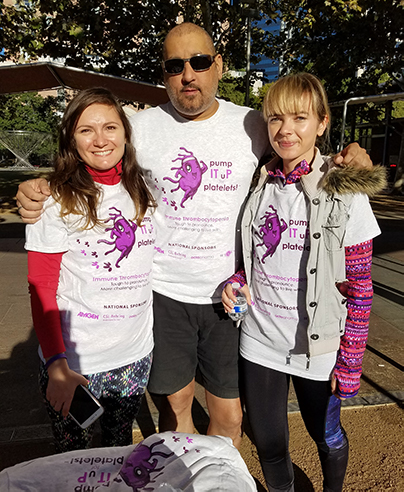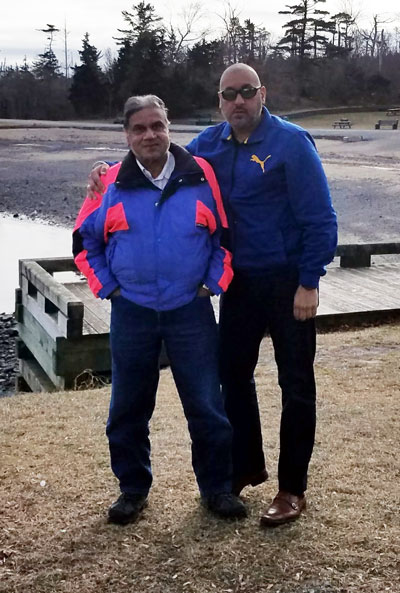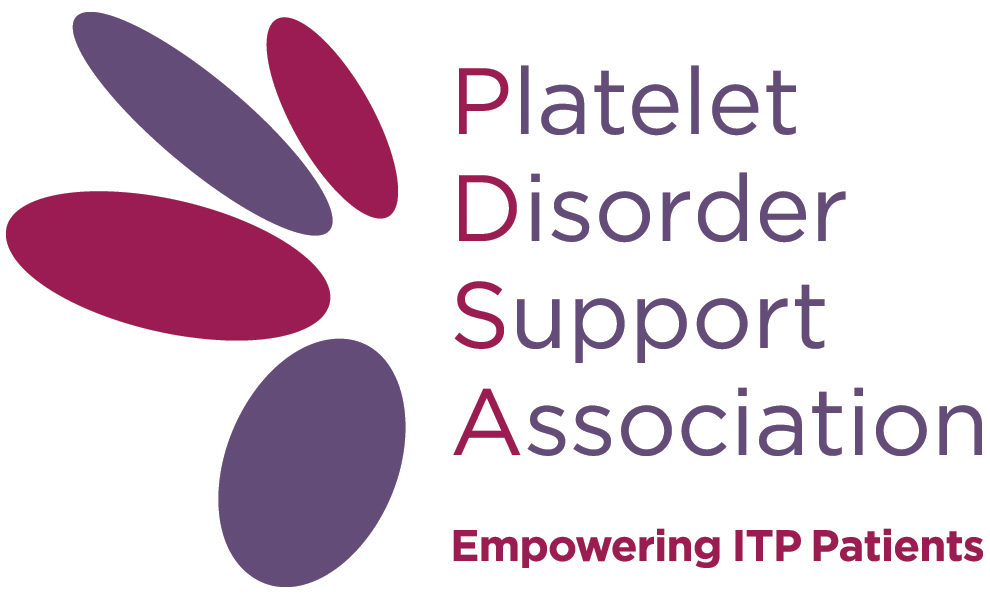MINDY'S ITP JOURNEY
 My name is Manminder Singh Combow, but
everyone calls me Mindy, lucky me, whereas I am a boy. I have been a
resident of Houston, Texas for the past 10 years, but was born in
Vancouver, British Columbia, Canada.
As a young child, my family and I moved to Canada’s east coast
to Halifax, Nova Scotia, which I consider as my hometown. I am a dual
citizen of both Canada (by birth) and the United States (naturalization, Jan
2017) but, as most Canadians are, especially proud to be a Canuck, not to
mention, a Maritimer through and through. I enjoy playing/watching
hockey, basketball, soccer, and, of course, cheering on the New
England Patriots to a big win! I have a Bachelor of
Commerce (BComm) degree and a Master of Business Administration (MBA) degree,
both from Dalhousie University in Halifax, Nova Scotia. I have worked in
the banking and financial services industry for over 20
years. In my previous life in Halifax, I was a Financial Advisor/Planner
and grew a book of business of high net worth clients. After completing my MBA,
I sold my client portfolio and moved to Toronto, Ontario. I worked in the
financial/banking services industry there for 9 years with 2 large international
banks in the downtown financial district (Bay Street). I was transferred to the
US in 2007 by Scotiabank and recently have taken a new position with BB&T –
Capital Markets, as Senior Vice President – Capital Markets -Corporate Banking.
My name is Manminder Singh Combow, but
everyone calls me Mindy, lucky me, whereas I am a boy. I have been a
resident of Houston, Texas for the past 10 years, but was born in
Vancouver, British Columbia, Canada.
As a young child, my family and I moved to Canada’s east coast
to Halifax, Nova Scotia, which I consider as my hometown. I am a dual
citizen of both Canada (by birth) and the United States (naturalization, Jan
2017) but, as most Canadians are, especially proud to be a Canuck, not to
mention, a Maritimer through and through. I enjoy playing/watching
hockey, basketball, soccer, and, of course, cheering on the New
England Patriots to a big win! I have a Bachelor of
Commerce (BComm) degree and a Master of Business Administration (MBA) degree,
both from Dalhousie University in Halifax, Nova Scotia. I have worked in
the banking and financial services industry for over 20
years. In my previous life in Halifax, I was a Financial Advisor/Planner
and grew a book of business of high net worth clients. After completing my MBA,
I sold my client portfolio and moved to Toronto, Ontario. I worked in the
financial/banking services industry there for 9 years with 2 large international
banks in the downtown financial district (Bay Street). I was transferred to the
US in 2007 by Scotiabank and recently have taken a new position with BB&T –
Capital Markets, as Senior Vice President – Capital Markets -Corporate Banking.
In June 2017, I travelled to Halifax to visit my family before joining BB&T. On the day of my flight, I experienced a nosebleed and also felt extremely tired. I did and tried everything in my power for the flight attendants and other passengers not to see me with blood profusely dripping out of my nose whereas, I knew I would probably been asked to be taken off the flight. Luckily, I had taken some napkins from the United Lounge (which I never do) in my suit jacket and after 20 minutes, the bleeding stopped. My flight landed at midnight and I struggled to make it home and to bed...I knew that I needed to see a doctor. The next morning, I went to the emergency room and after several tests and a (comparatively short) wait, I was admitted to the hospital for 7 days. Blood tests revealed my platelet count was 19,000 - which is deemed to be EXTREMELY LOW. The average adult’s platelet level is between 150,000 and 400,000. Anything less than 50,000 is deemed as an emergency, and as a result, I was treated in the ER.
 In the ER at the Queen Elizabeth Sciences Center
II (QE2), in Halifax, Nova Scotia, I was treated as a first/high priority
patient. They admitted me immediately and set up a brain cat scan (for worry of
brain hemorrhaging) and an ultrasound of all vital organs. With fingers crossed
and lots of prayers, the results all returned positive… but there was still something
wrong and the doctors, nurses, and specialists made it a top priority to investigate. After a full day in the emergency ward, I
was diagnosed with ITP (Idiopathic Thrombocytopenic Purpura). They
explained what this disease was, how it affected my body, and the treatment
options available to me. Their diagnosis and education explained all
those days where I was so tired and lethargic and getting out of bed was a
struggle, not to mention the unexplained bruises that would appear on my body,
which now all made sense. I was grateful to finally know and understand
the answer to this mystery that was in my life for several months (leading up
to the diagnosis). In a nutshell, my body is developing antibodies. These
antibodies are killing my blood platelets that are naturally developed from my
bone marrow. Blood platelet transfusion is sometimes an option in low platelet
count, but in this case, it would be a waste time and money because the
antibodies would just take over the platelets.
They diagnosed me with ITP and felt, due to how low my platelet level
was, that they would like keep me in the hospital and monitor me 24/7 to make
sure that I would not get any injuries in the “outside world”. My papercuts at
that time could have been life threatening, apparently, for the risk that I may
bleed out. After a few days of testing (cat scans,
ultrasounds of vital organs et al.) and medications, not to mention, sufficient
rest and three solid meals a day, my platelet count rose steadily to
66,000 before I was released from the hospital (I was in the hospital for 7
days in Canada). I returned to Houston and have been diligent in taking my
meds (Prednisone) and adjusting to managing my lifestyle around this
disease. Since being on a fairly high
dosage of prednisone (80mg/day) for the past 3 months, I have experienced some
of the common side effects associated with the drug – moon-face and weight gain.
The weight gain has had a significant effect on my desire and ability to play
league soccer and workout. My hope is to
ween myself off this drug, yet still be able to maintain a reasonable platelet
count and eventually go into remission. I feel strongly that education and
support will help empower me to understand better what the treatment options
are, as well as whether diet, exercise, and lifestyle can have a significant
effect on my health.
In the ER at the Queen Elizabeth Sciences Center
II (QE2), in Halifax, Nova Scotia, I was treated as a first/high priority
patient. They admitted me immediately and set up a brain cat scan (for worry of
brain hemorrhaging) and an ultrasound of all vital organs. With fingers crossed
and lots of prayers, the results all returned positive… but there was still something
wrong and the doctors, nurses, and specialists made it a top priority to investigate. After a full day in the emergency ward, I
was diagnosed with ITP (Idiopathic Thrombocytopenic Purpura). They
explained what this disease was, how it affected my body, and the treatment
options available to me. Their diagnosis and education explained all
those days where I was so tired and lethargic and getting out of bed was a
struggle, not to mention the unexplained bruises that would appear on my body,
which now all made sense. I was grateful to finally know and understand
the answer to this mystery that was in my life for several months (leading up
to the diagnosis). In a nutshell, my body is developing antibodies. These
antibodies are killing my blood platelets that are naturally developed from my
bone marrow. Blood platelet transfusion is sometimes an option in low platelet
count, but in this case, it would be a waste time and money because the
antibodies would just take over the platelets.
They diagnosed me with ITP and felt, due to how low my platelet level
was, that they would like keep me in the hospital and monitor me 24/7 to make
sure that I would not get any injuries in the “outside world”. My papercuts at
that time could have been life threatening, apparently, for the risk that I may
bleed out. After a few days of testing (cat scans,
ultrasounds of vital organs et al.) and medications, not to mention, sufficient
rest and three solid meals a day, my platelet count rose steadily to
66,000 before I was released from the hospital (I was in the hospital for 7
days in Canada). I returned to Houston and have been diligent in taking my
meds (Prednisone) and adjusting to managing my lifestyle around this
disease. Since being on a fairly high
dosage of prednisone (80mg/day) for the past 3 months, I have experienced some
of the common side effects associated with the drug – moon-face and weight gain.
The weight gain has had a significant effect on my desire and ability to play
league soccer and workout. My hope is to
ween myself off this drug, yet still be able to maintain a reasonable platelet
count and eventually go into remission. I feel strongly that education and
support will help empower me to understand better what the treatment options
are, as well as whether diet, exercise, and lifestyle can have a significant
effect on my health.
 After taking into consideration of the long-term effects of being on Prednisone, my Hematologist, Dr. Mark Udden, Baylor College of Medicine, Houston, TX and my Hematologist in Halifax, NS Canada, Dr. Sudeep Shivakumar, QE2 Health Sciences, came up with some options as to the next steps for me. First thing was for me to get off Prednisone and look at other options. Promacta (Eltrombopag) came into the discussions as well as other prescriptions we could try. After considering other health variations in my body (Liver Enzymes) it was mutually decided by both doctors, without collaboration with each other, that they would like to take my spleen out. "Be gone with it!!"
After taking into consideration of the long-term effects of being on Prednisone, my Hematologist, Dr. Mark Udden, Baylor College of Medicine, Houston, TX and my Hematologist in Halifax, NS Canada, Dr. Sudeep Shivakumar, QE2 Health Sciences, came up with some options as to the next steps for me. First thing was for me to get off Prednisone and look at other options. Promacta (Eltrombopag) came into the discussions as well as other prescriptions we could try. After considering other health variations in my body (Liver Enzymes) it was mutually decided by both doctors, without collaboration with each other, that they would like to take my spleen out. "Be gone with it!!"
I am very fortunate to have 2 very well qualified and engaging hematologists in two countries. It gives me piece of mind, but it also gives me a state of assurance that they are on the same page and makes my decisions much easier. The thought of having a surgery and taking out an organ from my body would normally be a very hard decision. After hearing the pros and cons from the both physicians, my decision was made and final. The spleen was coming out. I chose to have my spleen removed in Halifax, Nova Scotia, Canada. I was referred to a splenectomy specialist, Dr. Dennis Klassen. He is one of the most prominent spleen surgeons in Canada and my procedure was to be his 340th splenectomy.
As of October 2, 2018 at 7:30 am my spleen was removed via a laparoscopic surgery. Great staff at the Victoria General and great surgical team made it a great experience. All went well and I am in recovery mode right now. It will take a week or two to see if it took. My platelet count before the surgery was 35,000. The day after the procedure my platelet count was up to 45,000. My results of my next blood tests and my follow-up with my Hematologist and surgeon is next week. I will be able to provide updates at the next PDSA meeting and/or at the PDSA walk in Houston, Texas on Sunday morning, October 28, 2018 (9 am, Discovery Green downtown Houston).
My hope is that as I continue to deal with the diagnosis, I am able to help my family, friends, and colleagues understand ITP. That is why this walk is so important in spreading awareness and providing support. As the slogan says, ITP is tough to pronounce, but with your help and support it should and can be easy to live with. Thank you.
PDSA is a 501 (c)3 organization.
Contributions are tax deductible to the extent of the law.
PDSA is eligible for corporate matching programs.
PDSA receives NO federal funding.



